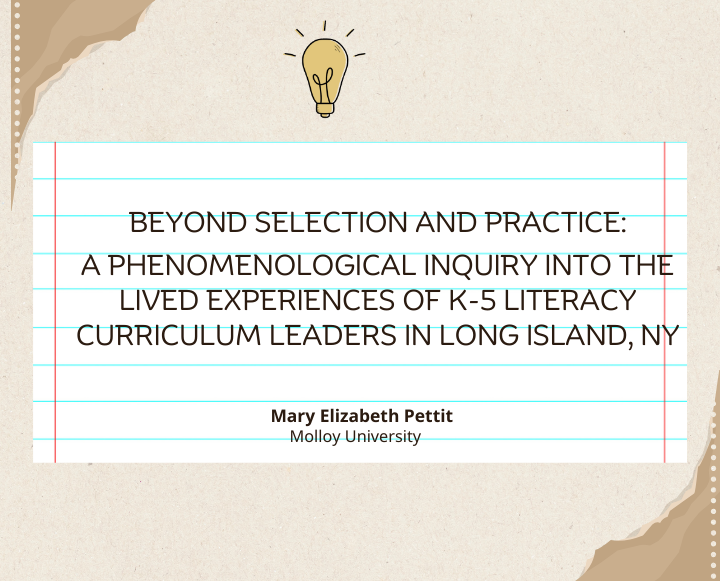ABSTRACT
The ongoing cycle of educational reform in America has led policymakers and educational leaders to prioritize test-based results and de-prioritize noncognitive skills, equitable outcomes, and crucial socio-emotional aspects of schooling (Lynch et al., 2009). Despite the equitable goals outlined in previous education policy reforms, intended outcomes have been eclipsed by the toxic ideology of a Global Education Reform Movement (GERM), which ultimately influences the curriculum selection and implementation process (Sahlsburg, 2012). A literature review uncovers how inequity has been entrenched in the American education system since the 18th century, perpetuating social stratification and hindering efforts for equitable education reform. Drawing from accountability and critical leadership theoretical frameworks, this hermeneutic phenomenological research study focused on the perceptions of seven district-level literacy curriculum leaders from Long Island, NY, related to the influence of educational reform on the selection, implementation, and evaluation of K-5 literacy curriculum. Data were collected in four phases: questionnaires, semi-structured interviews, a focus group, and member checks. Using Aguas’ (2021) Fusion approach to data analysis facilitated connections between transcendental descriptions and hermeneutic interpretations. A neo-institutional framework was employed in the interpretive stage of data analysis to inductively explore the constraints faced by curriculum leaders within the larger institutional system. Findings reveal; 1) notable disparities in perceptions of roles and duties among curriculum leaders, 2) the complexity of managing political and professional factors, 3) diverse approaches to selecting and evaluating literacy programs, 4) the significant impact of the COVID-19 pandemic on curriculum leaders’ ability to balance compliance structures with equity in literacy education, 5) curriculum leaders across Long Island exhibit varied prioritization of federal and state mandates and accountability structures. As the field of education evolves, particularly in the post-pandemic era, it is crucial to dissect these disparities and strive for a more uniform definition of a curriculum leader role. Dismantling barriers to equity will require a recalibration of the curriculum selection, implementation, and evaluation process. Limitations and recommendations for future research are provided.
Key Terms: Structural inequality, Accountability in education, Global Education Reform Movement (GERM), Educational Inequity, Audit Culture, Effective Leadership, Instructional Integrity, Organizational Legitimacy
Link to publication: coming soon


Leave a comment